Covid-19 response should be measured
As panic conditions result
mainly from high fatality rate, there is actually scientific evidence
that much of this panic, and the resulting mental health problems, are
not based on any hard evidence.
In such a situation the most obvious and important question is
whether at a policy level the world has been able to respond in an
effective and rational way.
Unfortunately, the answer is clearly in the negative. On the plus side, there is huge scope for reducing distress if midway policy corrections can be made at a world level and in most countries.
It hardly needs to be emphasized that the first step is to have a proper understanding of the problem. This itself has been an area of much confusion. In this context one of the most discussed contributions has been written by a very senior scientist and a renowned expert on this issue, Dr. John P.A loannidis. He is Professor of Medicine and Professor of Epidemiology and Population Health, Stanford University School of Health.
His contribution, published on March 17 in STAT News, is titled ‘ A Fiasco in the Making’. Essentially here he has stated that as the pandemic takes hold, we are making decisions without reliable data. Dr. loannidis says:
At a time when everyone needs better information, from disease modelers and governments to people quarantined or just social distancing, we lack reliable evidence on how many people have been infected with SARS-CoV-2 or who continue to become infected.
Better information is needed to guide decisions and actions of monumental significance and monitor their impact.” Further he says regarding the adverse policy impacts of this serious shortcoming in world response,
“Draconian counter-measures have been adopted in many countries.
If the pandemic dissipates – either on its own or because of these measures – short-term extreme social distancing and lockdowns may be bearable. How long, though, should measures like these be continued if the pandemic churns across the globe unabated?
How can policymakers tell if they are doing more good than harm?” Dr. loannidis goes on to show how the prevailing fatality rate estimates are likely to be exaggerated and the actual fatality rate is likely to be much lower.
As panic conditions result mainly from high fatality rate, there is actually scientific evidence that much of this panic, and the resulting mental health problems, are not based on any hard evidence.
Somewhat similar views regarding the likelihood of a significantly lower fatality rate and the need for avoiding sweeping counter-measures such as prolonged lockdowns have been expressed by some other very senior scientists as well including Dr. Sucharit Bhakdi, who was head of the Institute of Medical Microbiology and Hygiene, Germany and has corresponded with the German Chancellor for re-examining the response.
Hence it is clear that there is a strong need for avoiding panic and panic-driven draconian responses which also have a tendency of curbing transparency and contributing to the growth of authoritarianism.
Instead we need transparent, democratic responses based on dialogue with communities and scientists/experts holding divergent opinions and understanding so that the best possible responses, based on extensive research and the best understanding of the existing knowledge base, can be evolved.
Also, it is important to ensure that these responses are based entirely in public interest and are free from any narrow motives of greed and domination. Unfortunately, the response of the world has so far not lived up to these ideals and so course correction is clearly needed.
Basically, we need a response where such medically needed norms of social distancing, quarantine, tests and treatment etc. are evolved which can co-exist with the basic requirements of protecting livelihoods and food security of people.
While meeting special Covid-19 related medical needs (particularly essential medicines and equipment, protection needs of medical and sanitation staff ), life-saving medicines and services should continue to be available at least at the same level as before for other serious diseases and injuries as well as for maternity and child-birth.
Dr. Peter Goetzsche, Prof. of Clinical Research Design and Analysis at the University of Copenhagen recently made an interesting observation on the responses of various governments to the ongoing pandemic.
He said, “Our main problem is that no one will get in trouble for measures that are too draconian. They will only get in trouble if they do too little.
So, our politicians and those working with public health do much more than they should do.” However, he adds that draconian measures cannot be applied beyond a point and so we have to think of different approaches which can be sustained.
(The writer is a freelance journalist and author. His recent books are Planet in Peril and Protecting Mother Earth for Children)
https://www.thestatesman.com/opinion/covid-19-response-measured-1502875503.html
Unfortunately, the answer is clearly in the negative. On the plus side, there is huge scope for reducing distress if midway policy corrections can be made at a world level and in most countries.
It hardly needs to be emphasized that the first step is to have a proper understanding of the problem. This itself has been an area of much confusion. In this context one of the most discussed contributions has been written by a very senior scientist and a renowned expert on this issue, Dr. John P.A loannidis. He is Professor of Medicine and Professor of Epidemiology and Population Health, Stanford University School of Health.
His contribution, published on March 17 in STAT News, is titled ‘ A Fiasco in the Making’. Essentially here he has stated that as the pandemic takes hold, we are making decisions without reliable data. Dr. loannidis says:
“The current coronavirus Covid-19 has been called a
once-in-a-century pandemic.
But it may also be a one-in-a-century
evidence fiasco.
At a time when everyone needs better information, from disease modelers and governments to people quarantined or just social distancing, we lack reliable evidence on how many people have been infected with SARS-CoV-2 or who continue to become infected.
Better information is needed to guide decisions and actions of monumental significance and monitor their impact.” Further he says regarding the adverse policy impacts of this serious shortcoming in world response,
“Draconian counter-measures have been adopted in many countries.
If the pandemic dissipates – either on its own or because of these measures – short-term extreme social distancing and lockdowns may be bearable. How long, though, should measures like these be continued if the pandemic churns across the globe unabated?
How can policymakers tell if they are doing more good than harm?” Dr. loannidis goes on to show how the prevailing fatality rate estimates are likely to be exaggerated and the actual fatality rate is likely to be much lower.
As panic conditions result mainly from high fatality rate, there is actually scientific evidence that much of this panic, and the resulting mental health problems, are not based on any hard evidence.
Somewhat similar views regarding the likelihood of a significantly lower fatality rate and the need for avoiding sweeping counter-measures such as prolonged lockdowns have been expressed by some other very senior scientists as well including Dr. Sucharit Bhakdi, who was head of the Institute of Medical Microbiology and Hygiene, Germany and has corresponded with the German Chancellor for re-examining the response.
Hence it is clear that there is a strong need for avoiding panic and panic-driven draconian responses which also have a tendency of curbing transparency and contributing to the growth of authoritarianism.
Instead we need transparent, democratic responses based on dialogue with communities and scientists/experts holding divergent opinions and understanding so that the best possible responses, based on extensive research and the best understanding of the existing knowledge base, can be evolved.
Also, it is important to ensure that these responses are based entirely in public interest and are free from any narrow motives of greed and domination. Unfortunately, the response of the world has so far not lived up to these ideals and so course correction is clearly needed.
Basically, we need a response where such medically needed norms of social distancing, quarantine, tests and treatment etc. are evolved which can co-exist with the basic requirements of protecting livelihoods and food security of people.
While meeting special Covid-19 related medical needs (particularly essential medicines and equipment, protection needs of medical and sanitation staff ), life-saving medicines and services should continue to be available at least at the same level as before for other serious diseases and injuries as well as for maternity and child-birth.
Dr. Peter Goetzsche, Prof. of Clinical Research Design and Analysis at the University of Copenhagen recently made an interesting observation on the responses of various governments to the ongoing pandemic.
He said, “Our main problem is that no one will get in trouble for measures that are too draconian. They will only get in trouble if they do too little.
So, our politicians and those working with public health do much more than they should do.” However, he adds that draconian measures cannot be applied beyond a point and so we have to think of different approaches which can be sustained.
(The writer is a freelance journalist and author. His recent books are Planet in Peril and Protecting Mother Earth for Children)
https://www.thestatesman.com/opinion/covid-19-response-measured-1502875503.html














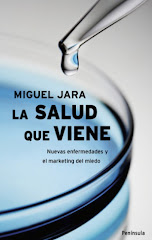














































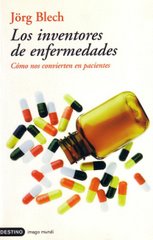





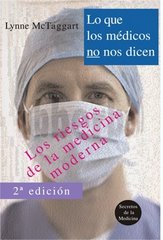


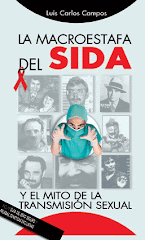























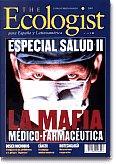

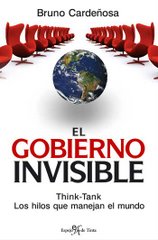



No hay comentarios:
Publicar un comentario